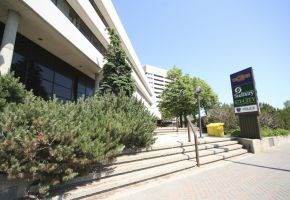Posted by Sudbury Northern Life Reporter Bill Bradley
City council will receive a report Wednesday on why tenders for city work can be very different from the estimates of engineers.
City staff noted in their report that any engineering project goes through a number of stages, conceptual estimate, detailed design and engineer's estimate, tendered contract price and final contract price.
"These estimates use very approximate costs based on general industry guidelines, i.e. number of kilometres of road at cost per kilometre. As the projects either evolve or move higher in the scheduled capital programs, the estimates are adjusted on an annual basis to reflect current market conditions," states the staff report.
Ideally, the detailed design of a project would be complete
the year before it is scheduled for construction so the
financial figures are current.
 
"With this timing schedule, staff can accurately plan for
specific projects at current market priced estimates and unit
costs."
It is this engineer's estimate that is shown on the tender opening committee minutes. Because these approved projects are shovel ready it is easier to find public and private financing for them.
However, trouble arises when tenders come in from the contractors to complete the project that can be higher than what was estimated by the engineers.
One problem area is oil prices, according to city staff.
"Oil and/or one of its many derivatives are used extensively
in construction projects. In addition to lubricating and
fueling machinery and equipment, oil forms a major part of the
cost of asphalt."
 
Asphalt is a major component of most road and water/wastewater
projects.
"Price swings in this commodity can greatly influence the cost of a project."
Staff cite the example of oil increasing from approximately $50 per barrel in January 2007 to a high of $140 in July 2008.
"Similarly, the tendered price for asphalt was $102 per ton in 2006, increasing 19 per cent in 2007 and a further 17 per cent in 2008. This situation was even more pronounced for the asphalt patching contract where prices per square metre increased 83 per cent from 2006 to 2008.
Another little know factor is that oil refineries have become better at producing higher value petroleum products. This means asphalt cement, which depends on a waste oil byproduct of the refining process, is less readily available, and is more costly due to supply and demand pressures.
Historically, the city's engineering department has used the previous year's pricing plus an inflationary increase of five per cent in their cost calculations. However, recent volatility in commodity prices like oil have been a problem in estimating project costs.  
Another problem has been availability of contractors.
"With a strong economy throughout 2007 and 2008 all contractors
have been extremely busy with capital projects both from the
public sector and the private sector. The larger volumes of
work combined with the limited number of local contractors to
do the work have caused prices to increase accordingly."
Limited labour has been another problem.
Last year the unemployment rate in Greater Sudbury dropped to 5.6 per cent, the lowest since the 1960s and one of the lowest in Canada.
"As a result, contractors have had to increase wages beyond normal inflationary adjustments to keep and/or attract employees."
One way to limit costs is to tender contracts early before contractors are fully committed. More bids on work come in, resulting in more competition for the work.
A problem this year is the long wait for application forms and project criteria for federal infrastructure funding. Once that is obtained, there still can be a lengthy approval process, leading to even more delays.
If approval does not come soon enough, projects may have to be delayed another year. That could happen to the city's major pave and shave program for city roads, according to Greg Clausen, Greater Sudbury general manager of infrastructure services.
Once again, project costs could become outdated and out of whack when tenders finally come in when funding has been approved.
